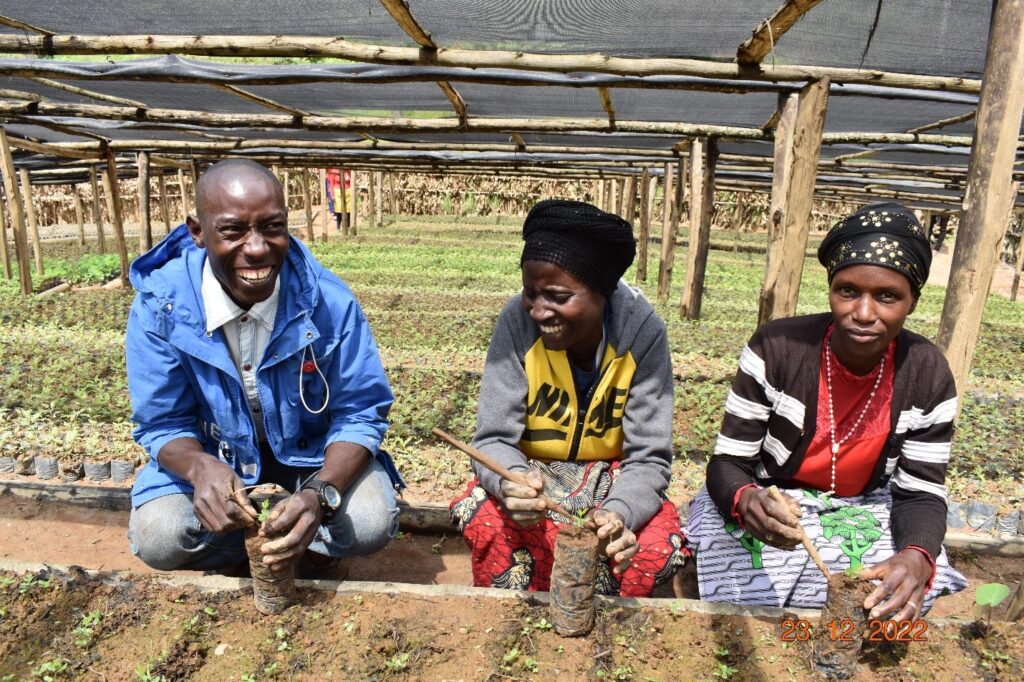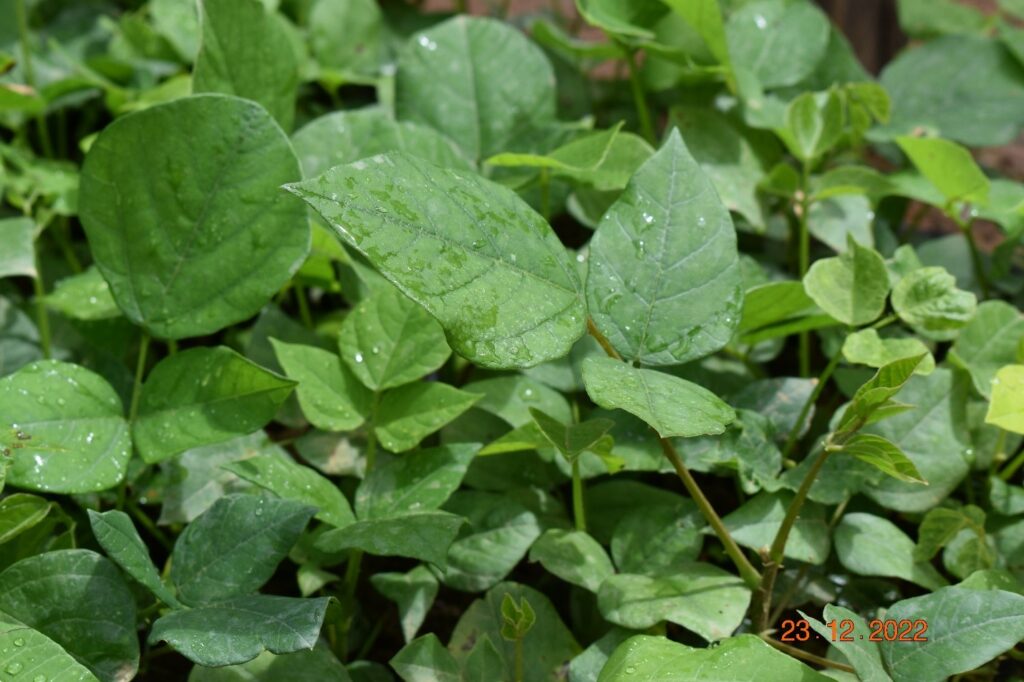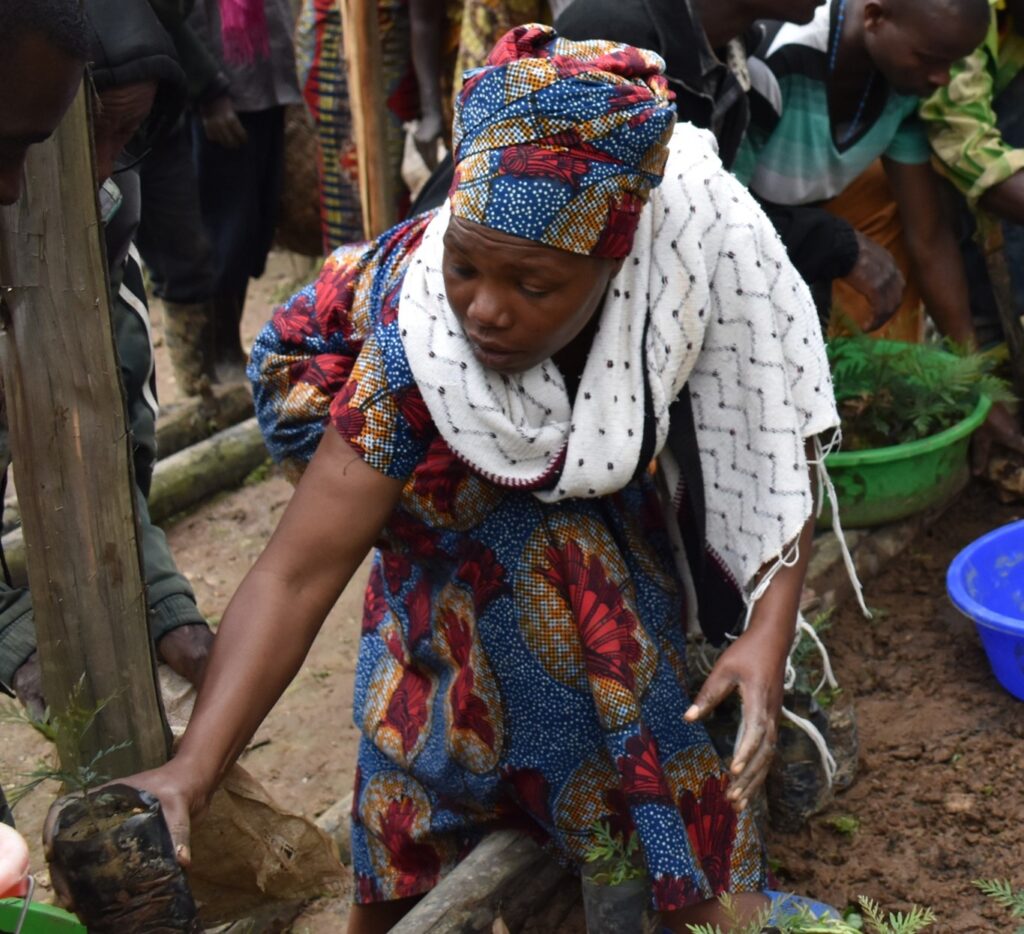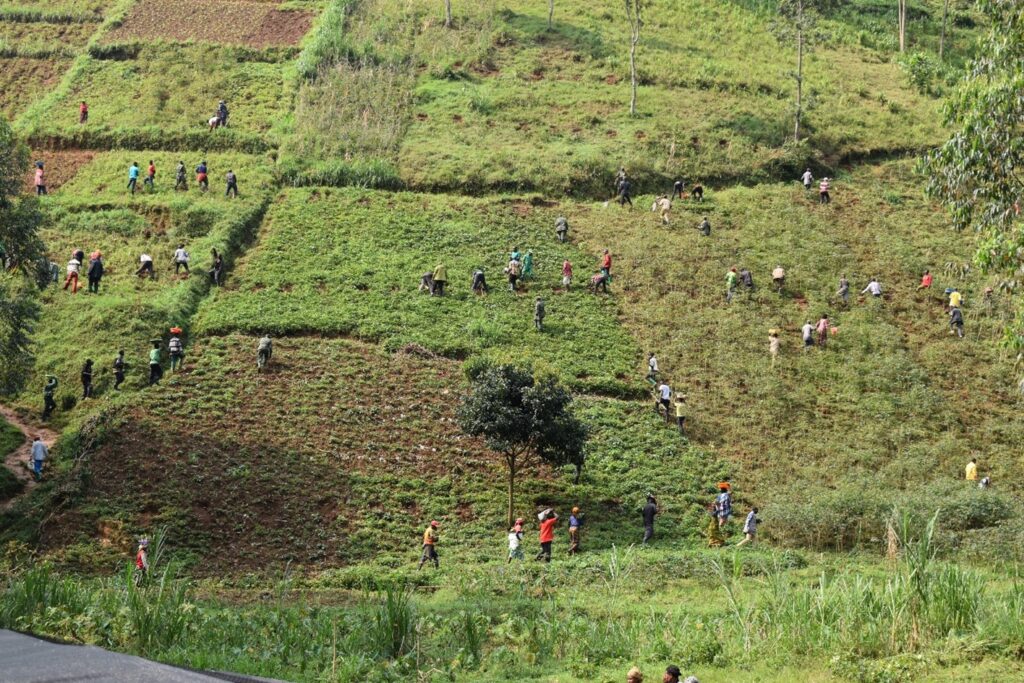Restoring degraded forest landscapes in Rwanda

In Rwanda, Nature Rwanda and BirdLife International are working with local communities to enhance climate resilience and community livelihoods.
By Elie Sinayitutse
Like many African countries, Rwanda has been impacted by the effects of climate change. Its rugged topography of mountainous areas and steep sided valleys has further exacerbated these effects. This has affected communities, with extreme rainfall causing flooding, landslides, and often displacing people and sometimes causing deaths.
Enveloped between Lake Kivu, River Ruhwa and Nyungwe National Park, Bweyeye and Butare Sectors of Rusizi District in Western Rwanda exemplify the challenges associated with degraded lands, made worse by climate change. They are part of the Lake Kivu-Rusizi River basin where unsustainable agricultural practices and artisanal mining have contributed to high levels of soil erosion, land degradation and sedimentation. This has affected communities’ ability to produce sufficient food and browned the rivers. Consequently, securing the environment, climate resilience and livelihoods in the area needs an integrated approach to ensure restoration of degraded lands for healthy ecosystem functioning.
With the support of TerraFund for AFR100, BirdLife International in partnership with Nature Rwanda are implementing a project to restore 500 hectares of degraded lands in the farming landscapes of the two sectors through planting 300,000 trees, which include 15,000 fruit trees and 285,000 agroforestry and fodder trees. Over 110,000 seedlings are currently growing in two community managed tree nurseries. Since its inception in July 2022, the project has established two community-managed nurseries with up to 110,000 healthy seedlings of eight tree species.

“We are empowering local communities to establish and manage their own tree nurseries, thus ensuring they have the capacity to do this beyond the project. Communities prefer both agroforestry and fruit trees to help secure soil and improve fertility on their land as well as improve economically”, said Jean Claude Dusabimana, Executive Director, Nature Rwanda.
“Our area is very prone to disasters and deprived of projects that provide job opportunities. We appreciate this restoration project that is creating jobs and training us about tree nursery management, and how trees can help in climate resilience” , noted Lambert Ndabanitse, a community member who works at the Butare sector tree nursery.
In Bweyeye sector, Anastasie Mukantwari’s fortunes have improved since she started working in the nursery. The 40 years old mother of six children can now meet some of her family’s expenses. “It was a problem for my family to pay health insurance, but from working in the nursery, I managed to pay the insurance to all six members and I’ve started saving to buy a cow in the next coming 6 months”, said Mukantwari.

As part of the restoration activities, Nature Rwanda, BirdLife International and Rusizi District launched the first tree planting season in February 2023. During this exercise 6,015 trees were planted on 5 ha in Butare sector and 5,484 trees on 5.5 ha in Bweyeye sector. More tree planting activities are lined up, with 44,235 trees to be planted in Butare sector and 54,536 trees in Bweyeye sector.
While launching the official tree growing season in Bweyeye and Butare Sectors, the Vice Mayor of Rusizi District, Louis Munyemanzi Ngagijimana appreciated the restoration initiative which is a solution to both sectors which are very prone to climate change impacts. “We are grateful for this initiative and your commitment to prioritizing Butare and Bweyeye sectors. We must work together with local communities like we are doing today to safeguard the soils in this area. We also encourage other civil society organizations to learn from Nature Rwanda and do the same to build climate resilient communities and ecosystems. We should also find resources to scale up the work”, he added.

Speaking during the launch, Ken Mwathe, the Policy and Communications Coordinator for BirdLife International in Africa said that effective restoration will require deliberate commitment from all actors. “We are delighted to see great support from government actors and local communities in Rwanda for this project. Restoring land with appropriate tree species will ensure people have access to key ecosystem services like pollination and soil conservation. We are grateful to TerraFund for providing the resources to kick off this project”, he added..
While Butare and Bweyeye sectors are known to be vulnerable to the effects of climate change, this project will strengthen community capacity for climate resilience and sharpen community knowledge for safe land use and management. The project will be carried out for five years, benefitting over 5,000 households representing 25,000 people in the Butare and Bweyeye sectors.
About AFR100
The TerraFund for AFR100 (the African Forest Landscape Restoration Initiative) is a country-led effort to bring 100 million hectares of land in Africa into restoration by 2030. AFR100 contributes to the Bonn Challenge, the African Resilient Landscapes Initiative (ARLI), the African Union (AU) Agenda 2063, the Sustainable Development Goals and other targets.

“We are empowering local communities to establish and manage their own tree nurseries, thus ensuring they have the capacity to do this beyond the project”
Jean Claude Dusabimana, Executive Director, Nature Rwanda